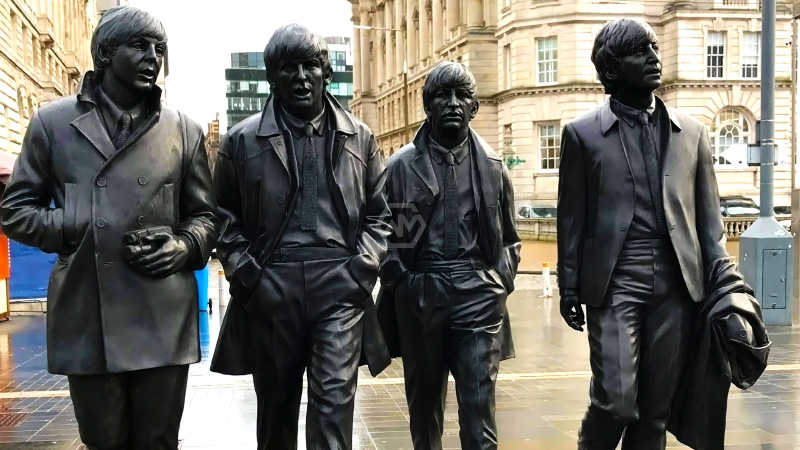In a second that has left fans in wonder, man-made brainpower has reinvigorated the famous music of The Beatles, exceptionally rejoining the Fab Four.
With the force of simulated intelligence, the innovation has made joint efforts that overcome any issues over a long time since the band’s separation, offering fans a brief look at what might have been, as indicated by a report by AFP.
AI Reunites The Beatles
These falsely produced creations range from rethinking Paul McCartney’s later works with his voice reestablished to its young abilities to join the musicians’ performance vocations.
While these manifestations exhibit the exceptional advancement of man-made intelligence, they likewise raise critical moral and legitimate worries.
One fan-made man-made intelligence cover that earned close-to-home responses is an interpretation of McCartney’s 2013 single, “New.”
This form highlights de-matured vocals and even incorporates a scaffold part “sung” by the late John Lennon, McCartney’s songwriting accomplice, and companion.
The YouTube remarks area mirrors the significant effect of this coordinated effort, with audience members communicating their staggering feelings and depicting the experience as lovely and tear-actuating.
Another important simulated intelligence creation is a redo of “Become Old With Me,” one of the last tunes composed by Lennon.
Initially delivered post-mortem after his lamentable homicide in 1980, this melody has now been revived by a simulated intelligence maker known as “Dae Lims.”
- The better solid clearness, instrumental backup, and synchronized sponsorship vocals act as a recognition for the brilliant time of the Liverpool rockers.
- The cycle behind these man-made intelligence-produced coordinated efforts includes modern innovation and gifted human administrators.
- Scratching innovation is utilized to investigate and catch the subtleties of a particular voice, which is then joined with the makers’ vocals.
The cycle looks like applying a channel to a photo, yet openness to the instruments is restricted. Computer-based intelligence-created music raises copyright and lawful worries, influencing the music business.
Adjusting fair use and copyright security becomes intricate as people change vocals and copyright claims emerge. Late court decisions incline towards reinforcing copyright insurance.
Tending to these difficulties might include the foundation of intentional industry principles or possible suit. Superstars can safeguard their similarity through the “right to exposure” point of reference.
Freedom holders should cautiously consider the possible reaction of chasing after legitimate activity against fan-made recognitions that are non-business.
The simulated intelligence created coordinated efforts that have rejoined The Beatles from a virtual perspective is a demonstration of the advancement of innovation.
They give fans a brief look into what might have been and inspire strong feelings. Be that as it may, as man-made intelligence keeps on reshaping the limits of music creation, tending to moral, legitimate, and copyright suggestions will be vital.



